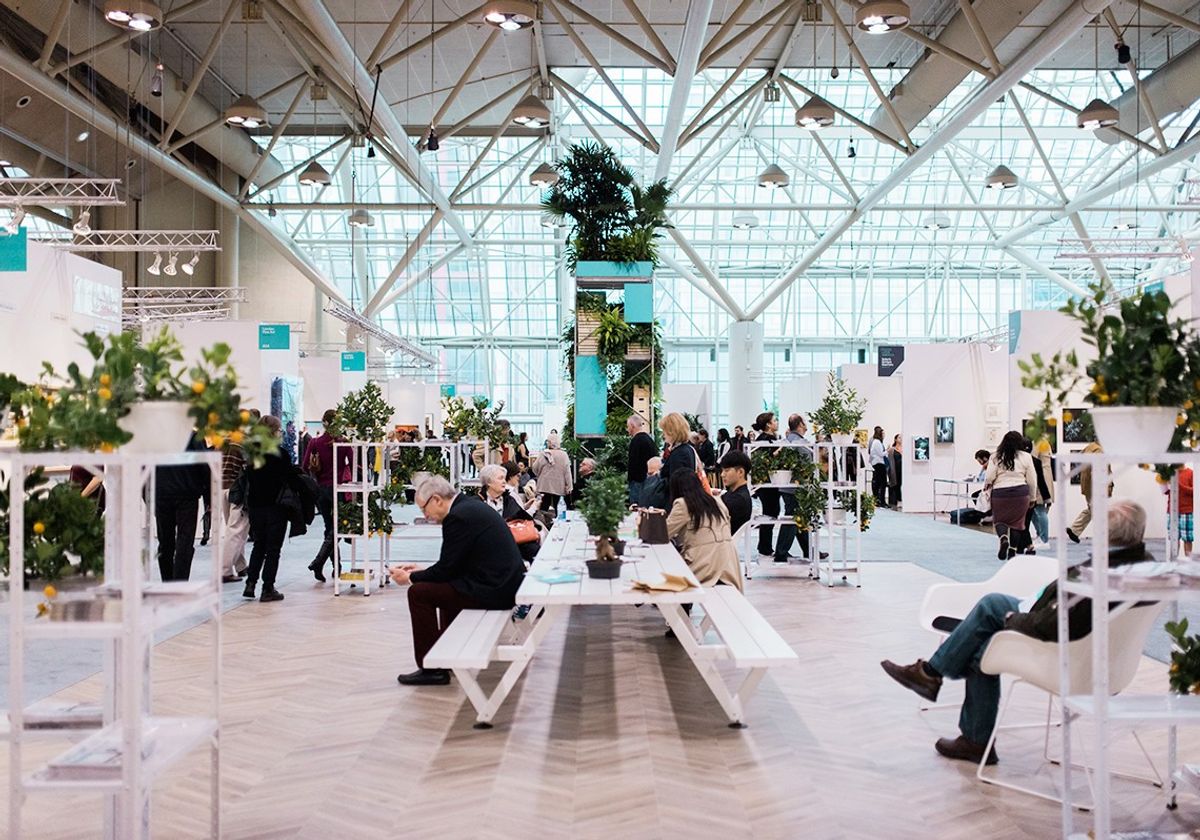Art Toronto (29-31 October), one of Canada’s most established commercial art fairs, has come under fire this week after a curator took to social media with claims they are owed back wages after being unfairly dismissed during the pandemic last year. The fair, however, says the curator was paid a portion of their fee since the in-person event was cancelled last year due to Covid restrictions issued by the Canadian government.
In a post entitled “It’s time to talk about Art Toronto”, Kat Benedict, an artist from Canada but now based in London, says they signed a contract given to them by Art Toronto director Mia Nielson in 2019 to curate a section of the fair called Focus, dedicated to queer and non-binary artists and galleries. “My section was based on my experience as a non-binary artist,” Benedict told The Art Newspaper.
As the pandemic hit in early 2020, Benedict says they repeatedly reached out to the fair organisers but received little or conflicting information about whether the event would go ahead. Art Toronto eventually told the curator in late September 2020 that the fair would be online only, and they would no longer need Benedict’s curatorial input.
“Unfortunately, many of the galleries I invited were seen as disposable,” Benedict says. “I feel exploited and aggressed for having given her my cultural labour, and rather ashamed that a group as big as Informa, the multi-million pound parent company of Art Toronto, cannot afford to honour the remainder of my contract.” Benedict had done 40+ hours of work for the fair, and was paid C$3,500 ($2,800) of the C$6,000 ($4,800) fee originally agreed upon.
Informa, which is based in the UK and listed on the London Stock Exchange, reported £267.8m in operating profit in 2020.
A spokeswoman for Art Toronto and Informa said she was “disheartened” to learn of Benedict’s complaints. “Unfortunately, Art Toronto changed from an in-person fair to an online model due to the Ontario Government’s Covid-19 restrictions in September 2020 and suppliers were notified,” the spokeswoman said in a statement sent to The Art Newspaper.
“As a result of Art Toronto being completely online, it became impossible for all the obligations under the contract to be fulfilled because there was no in-person show floor to be curated,” the spokeswoman added. “Therefore, Benedict was paid an additional sum and the contract was terminated due to the impossibility. We are reaching out to Benedict directly to solve this contract dispute."
Benedict remains wondering why it has taken Informa more than a year to resolve the matter, noting that the entire process has become “stressful, unfair and detrimental” to their health and well-being. “In calling me a ‘supplier’ Art Toronto only proves their exploitative modes of working,” Benedict says.


